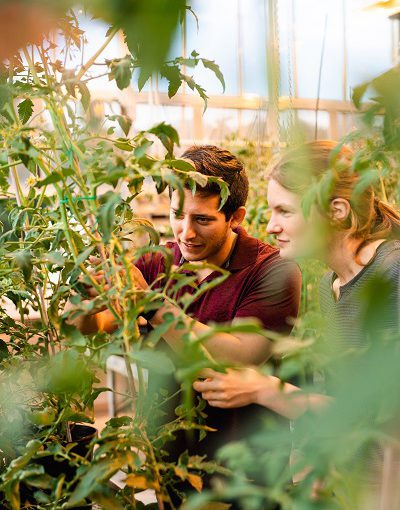Apr 17, 2020Wild tomato resistance to bacterial canker eyed by commercial tomato industry
Bacterial canker of tomato is a disease that leads to wilt, cankers, and eventually death. The disease was first discovered in Grand Rapids, Michigan, in 1909, but annual outbreaks now affect tomato production areas worldwide. For some farmers, bacterial canker can be devastating and spoil an entire season’s planting.
Bacterial canker is caused by the pathogen Clavibacter michiganensis, which infects commercially bred tomatoes by colonizing the xylem, a series of tubes that transports water and minerals throughout the plant. There a re no commercially available tomatoes resistant to bacterial canker and management options are limited. However, breeders have known that wild tomato species are less susceptible to bacterial canker, but this knowledge is limited.
re no commercially available tomatoes resistant to bacterial canker and management options are limited. However, breeders have known that wild tomato species are less susceptible to bacterial canker, but this knowledge is limited.
Scientists at the School of Integrative Plant Science at Cornell University were interested in understanding how C. michiganensis colonized the xylem in wild tomato and comparing to colonization of cultivated tomatoes. They found a significant difference, according to the paper published in Phytopathology.
F. Christopher Peritore-Galve, lead author of this paper, explains: “Interestingly, the pathogen colonizes to high densities close to the inoculation site in wild tomatoes, but it is found in much lower densities 5 and 10 centimeters above that site, meaning that the bacteria are unable to spread through the xylem as well as in cultivated tomato xylem.”
Additional research showed that the pathogen was restricted to the protoxylem vessels in vascular bundles of wild tomato.
 “Protoxylem are early formed xylem vessels that are smaller in diameter that enable water transport during early, rapid plant growth,” said Peritore-Galve. “We currently do not know why C. michiganensis preferentially colonizes these vessels, but that will be an avenue of future research.”
“Protoxylem are early formed xylem vessels that are smaller in diameter that enable water transport during early, rapid plant growth,” said Peritore-Galve. “We currently do not know why C. michiganensis preferentially colonizes these vessels, but that will be an avenue of future research.”
Understanding what makes wild tomatoes able to tolerate this pathogen may help with future breeding efforts. For more information about this study, read “Characterizing Colonization Patterns of Clavibacter michiganens is During Infection of Tolerant Wild Solanum Species.”
– The American Phytopathological Society
















